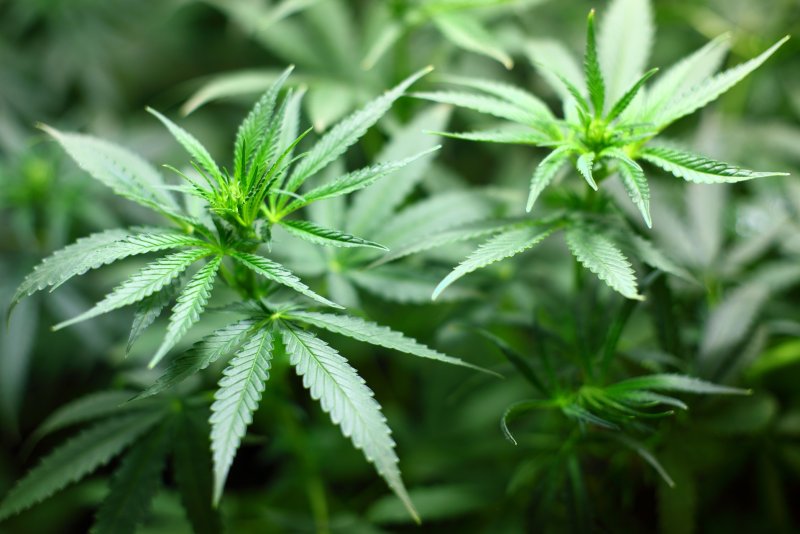A pre-clinical study found cannabis extract, a drug derived from marijuana, can reduce psychotic symptoms by reducing brain function abnormalties. Photo by 7raysmarketing/Pixabay
Aug. 29 (UPI) -- The chemical cannabidiol, or CBD, an extract derived from cannabis, appears to reduce psychotic symptoms by reducing brain function abnormalities, according to a new study.
King's College London researchers found for the first time that one dose of CBD, which is the non-intoxicating compound in marijuana, acts in the brain to reduce psychotic symptoms. The findings were published Wednesday in the Journal of the American Medical Association Psychiatry.
"There is an urgent need for a safe treatment for young people at risk of psychosis," Dr. Sagnik Bhattacharyya, a researcher at the Institute of Psychiatry, Psychology & Neuroscience at King's College, said in a press release. "One of the main advantages of cannabidiol is that it is safe and seems to be very well tolerated, making it in some ways an ideal treatment."
In June, the U.S. Food and Drug Administration approved the first use of cannabidiol for treatment of seizures associated with two rare and severe forms of epilepsy, Lennox-Gastaut and Dravet syndromes.
Researchers for years have been attempting to develop better drugs to treat psychosis.
"The mainstay of current treatment for people with psychosis are drugs that were first discovered in the 1950s and unfortunately do not work for everyone," Bhattacharyya said. "Our results have started unraveling the brain mechanisms of a new drug that works in a completely different way to traditional anti-psychotics."
Studied were 52 people in their mid 20s -- 33 who had not yet been diagnosed with psychosis but were experiencing psychotic symptoms, and 19 healthy controls -- between 2013 and 2016. One dose of cannabidiol was given to 16 participants, while 17 received a placebo.
An MRI scan was used while participants performed a memory task that engaged three regions of the brain known to be involved in psychosis: left middle occipital, the right lingual and the inferior frontal gyri.
Brain activity in the participants at risk of psychosis was abnormal compared with the healthy participants. But among those who had cannabidiol, the abnormal brain activity was less severe than for those who received a placebo.
In previous research, King's College London scientists found cannabidiol appears to work in opposition to tetrahydrocannabinol, or THC, the ingredient in marijuana responsible for getting users high.
The researchers said they are currently planning the first large scale, multi-center trial to investigate whether cannabidiol can treat young people at high risk of developing psychosis.















